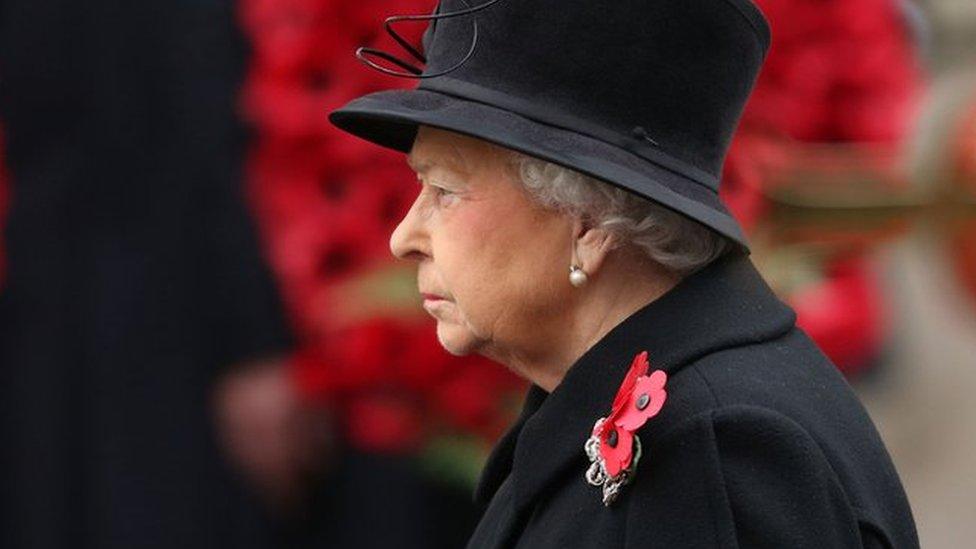Remembrance Sunday: Heads bowed as London falls silent
- Published
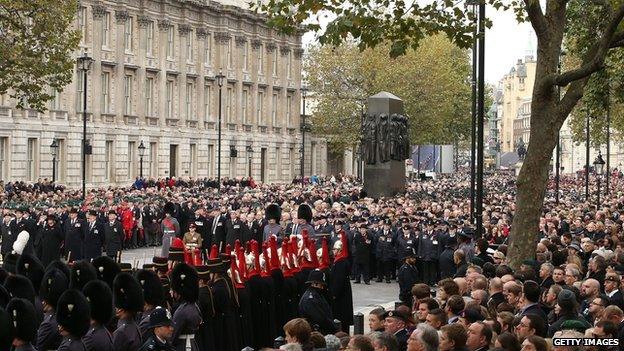
As one, the thousands of people lining Whitehall bowed their heads the moment Big Ben struck.
All that could be heard at 1100 GMT was the fluttering of leaves on what was a crisp autumn day, and the distant sound of birdsong.
There were veterans wearing medals alongside families in jeans and trainers.
What united them was not just the red poppy pinned on almost every chest, but their reason for being there - to stand together in memory of the nation's war dead.
Sgt Richard Lloyd, who is based at Wellington Barracks, said: "I was stood next to the cenotaph and absolutely nothing could be heard during the silence. It has been a fantastic atmosphere - very respectful.
"This brings the whole country together to remember those before us."
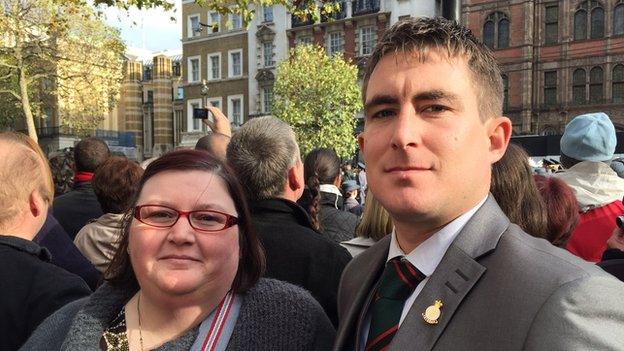
Kate Coules brought her grandson to the ceremony while Richard Sheldon (right) said the silence felt 'eerie'
During the laying of wreaths, many tried to catch a glimpse of the Queen as she approached the Cenotaph, using cameras to try to reach above the crowds.
Most could not see her, but simply being there was enough.
Their appreciation of the monarch was demonstrated in a spontaneous moment as the last strains of God Save the Queen rang out at the close of the ceremony.
A ripple of noise was heard heading down Whitehall which built into a warm round of applause as the Queen left the Cenotaph.
Richard Sheldon, who served in Afghanistan with A Company, 4 Rifles, said: "I had never heard anything like that before. She deserves it.
"The two-minute silence had felt eerie - you never hear London that quiet.
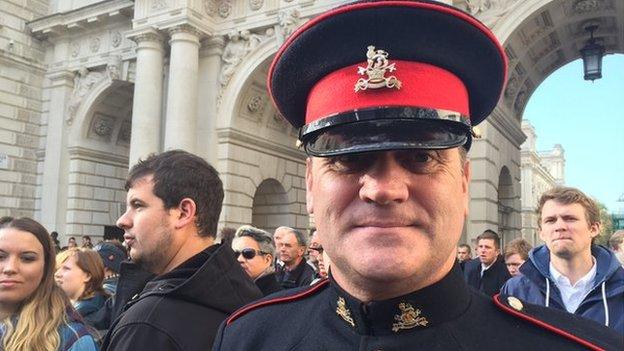
Sgt Richard Lloyd said the atmosphere was "very respectful"
"It's so nice to see everyone respect that.
"The whole atmosphere has been fantastic, to see people smiling at each other and not constantly looking down on their phones."
Kate Coules, who brought her grandson to the event for the first time, said: "The Queen wouldn't not be here today - and we have to support her.
"It's so important to come here. My father served in the Second World War and he always said: 'Nobody ever dies if you don't forget them.'"
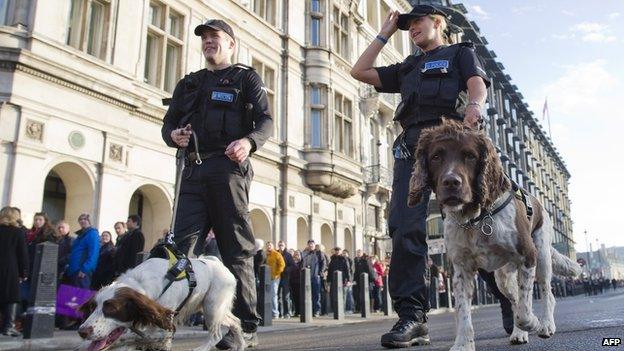
Security was noticeably tighter than in previous years around Whitehall
Referring to security measures that saw people scanned before they entered Whitehall, and queues snaking up past the Houses of Parliament, she said: "I had to queue for 40 minutes but I understood why - they need to make everyone safe."
Graham Foord, 59, from Dorset, who served with the Royal Marines for 24 years and has attended the ceremony in previous years, said: "Remembrance Sunday is always poignant. But this year is even more so - and it is the first year I am wearing my grandfather's and my father's medals as well.
"There is an even bigger crowd than normal."
.jpg)
Thomas McGugan (left) attended the ceremony with his brother-in-law Graham Foord
His brother-in-law, Thomas McGugan, had travelled from Florida and wore the Military Cross awarded to his own father. He said he felt "honoured" to attend.
Louise Stirling travelled from Oslo for the event - and to see the poppies at the Tower of London.
Her mother had lived in occupied Norway and moved to the UK at the end of World War Two, her fiancé having been killed in Germany in the last week of the war.
Ms Stirling, whose British father then met her mother in London, said: "My mother died last year. But she always remembered.
"Remembrance Sunday was very, very special to her. I have come here to feel the atmosphere, and simply to experience being in London.
"I think it is even more special this year - but it is also sad because the world is in such turmoil."
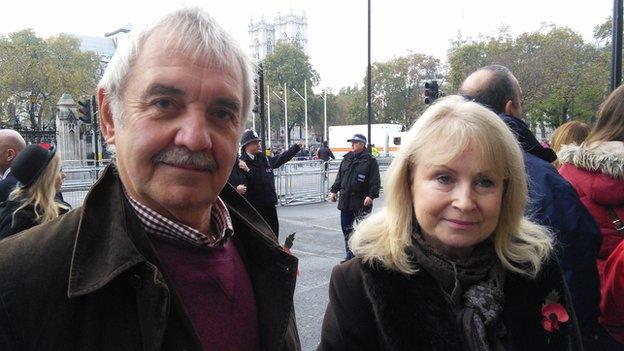
Maureen Norton and her husband Colin came to London to remember her brother Terence
As well as the centenary of World War One and the 70th anniversary of the D-day landings, some had more personal anniversaries to mark.
Maureen Norton, from Wigan, wanted to attend the ceremony for the first time as it is 40 years since her brother, Bombardier Terence Griffin, was killed in the IRA's coach bombing on the M62.
"It was important for me to mark the anniversary," she said. "I think it is fantastic how many are here - it is testament to the way people remember."
- Published9 November 2014
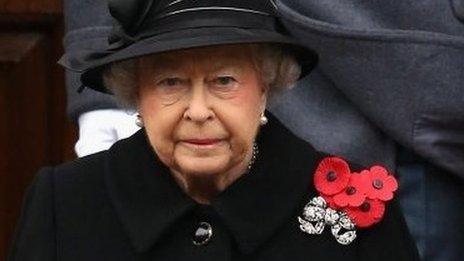
- Published9 November 2014
